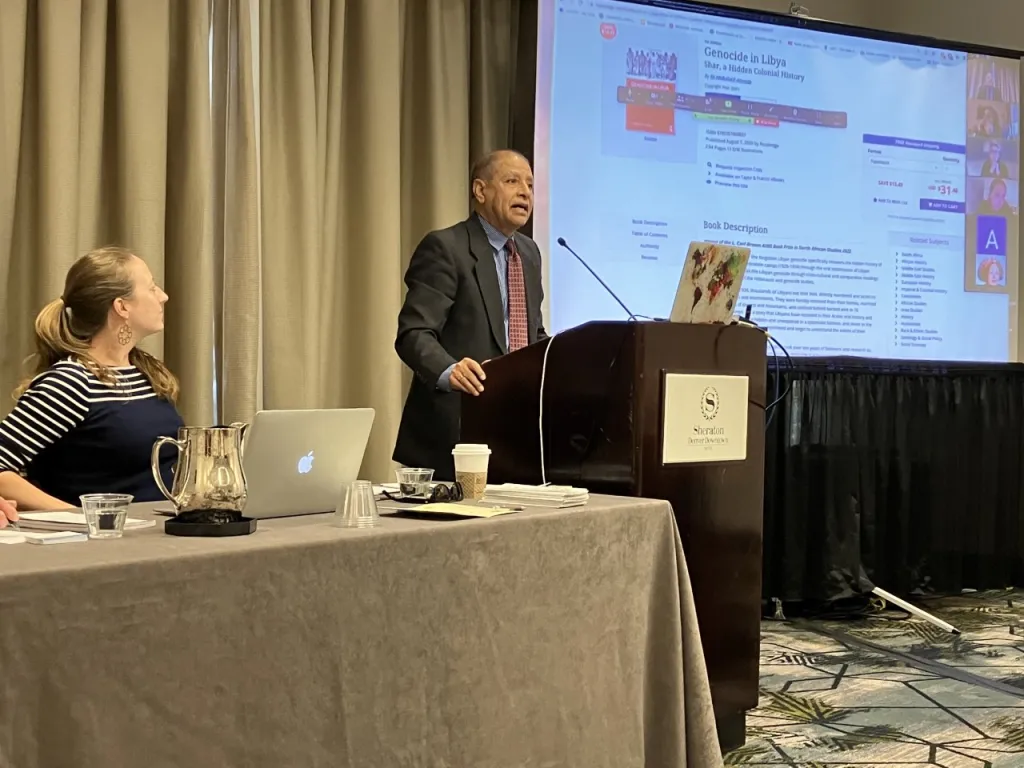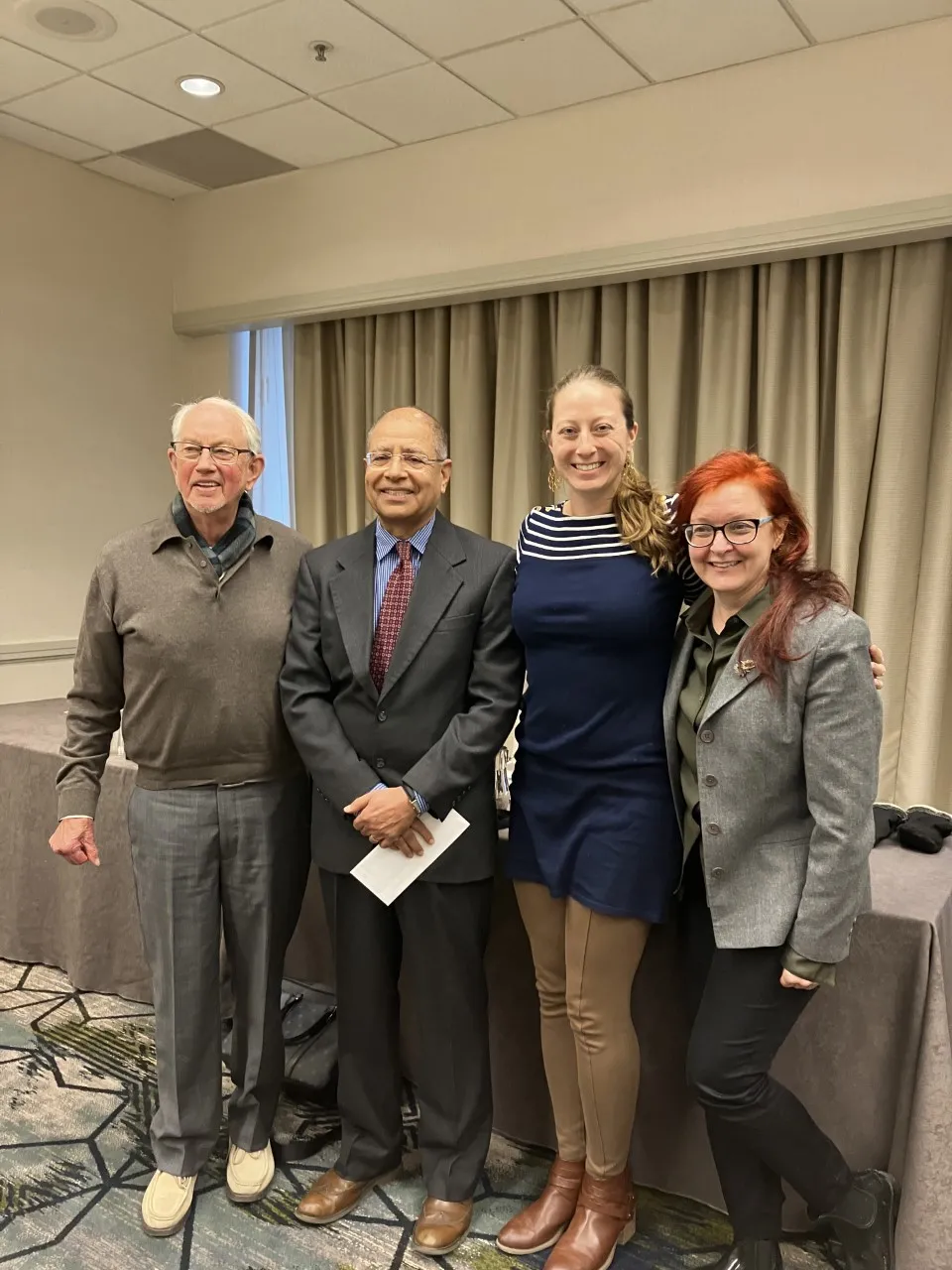UNE's Ali Ahmida wins prestigious book prize for 2020 publication

Ali Ahmida, Ph.D., professor in and founding chair of UNE’s Political Science program in the School of Social and Behavioral Sciences, has been awarded the 2022 L. Carl Brown Book Prize from the American Institute for Maghrib Studies (AIMS).
Established in 2013, the L. Carl Brown AIMS Book Prize is awarded annually to the author of an outstanding book in North African studies. According to the organization, the winning work reflects the innovative intellectual achievements in North African studies exemplified by Garrett Professor in Foreign Affairs and Professor Emeritus at Princeton University L. Carl Brown.
Ahmida won the award for his book “Genocide in Libya: Shar, A Hidden Colonial History,” published in late 2020.
The book recovers the hidden history of fascist Italian concentration camps in Libya between 1929 and 1934 through Libyan survivors’ oral testimonies, which took over 10 years of fieldwork to collect. It links the Libyan genocide through cross-cultural and comparative readings to the colonial roots of holocaust and genocide studies. It provides a new and original history of the genocide and is a key resource for readers interested in genocide and holocaust studies, colonial and post-colonial studies, and African and Middle Eastern studies.
As part of the prize, in addition to a $500 honorarium, Ahmida was invited to speak at the annual AIMS business meeting of the Middle East Studies Association (MESA) in Denver earlier this December.
“I am honored and delighted as the first UNE faculty member to win this award,” Ahmida remarked. “I am also grateful for all the support I have been given by all my peers and colleagues over the years. This is a huge recognition of my scholarship and for UNE, as well.”
Ahmida is an expert on North African and Libyan relations. He regularly gives interviews on Libyan affairs and, in 2021, was invited to join the Special Commission on Social Science Research in the Middle East and North Africa, an initiative of the Research Ethics Committee in the Middle East and North Africa (REMENA) project at Columbia University, which is dedicated to developing guidelines for the conduct of responsible, ethical, and social inquiry.

